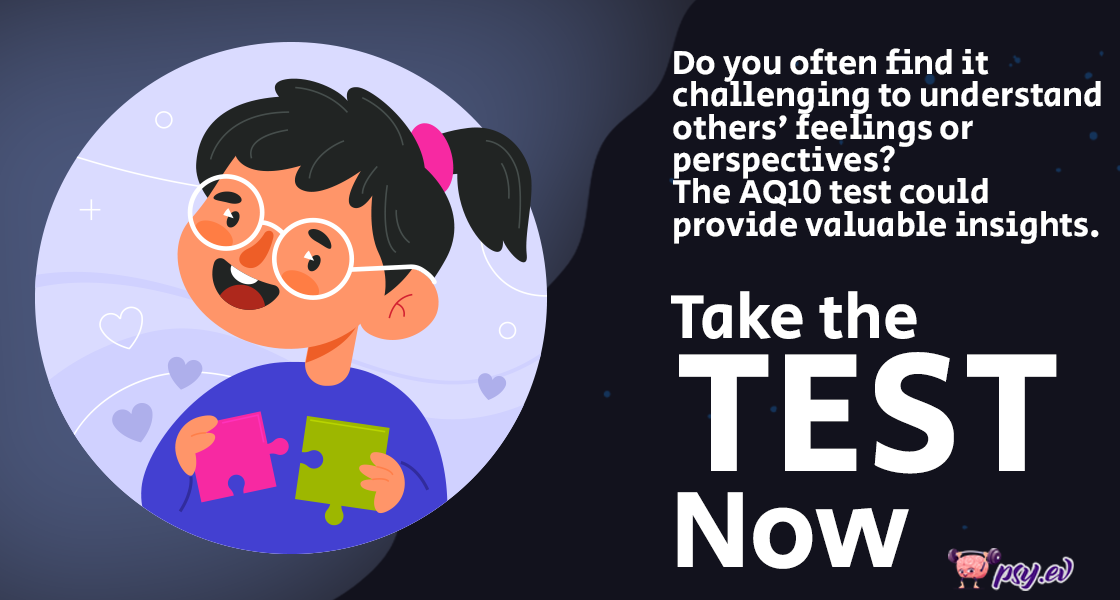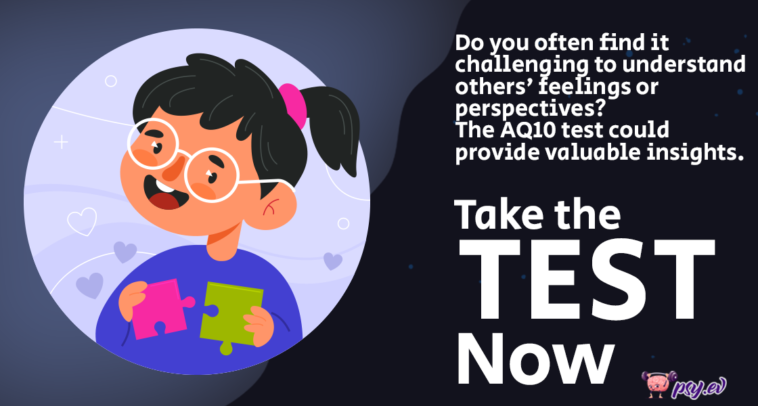With the help of this AQ10 test, you can assess if you or your loved one have autistic tendencies. Autism spectrum disorder affects how a person perceives and interacts with others. It results in issues with social, academic, and day-to-day life.
Even though there is no known cure for autism spectrum condition, early intervention can significantly improve the lives of many autistic individuals.
Autism Spectrum Disorder (ASD) in Adults
The awareness of autism has grown over time. As a result, diagnostic resources have been enhanced, and adult ASD symptoms are now easily recognized. As a result, more people are receiving appropriate diagnoses in their later years.
Adults experience different symptoms from those seen in children with autism. Moreover, adults with autism mostly learn to live with the symptoms. Therefore, making it challenging to diagnose. In comparison, some individuals on the spectrum may feel slightly different from those around them.
Therefore, the symptoms of autism can differ from one individual to another, making the diagnosis of ASD difficult.
Signs include a certain level of difficulty in communication and social contact. They could struggle to connect with others and comprehend their feelings. Adults with autism may exhibit rigid cognitive and behavioral patterns and engage in repeated behavior.
Autism in adults frequently results in either hyper- or hypo-sensitivity to sensory stimuli. Strong scents, bright lights, and loud noises could irritate such individuals. As an alternative, some people could be less sensitive to sensory information.
Adults with autism may show intense or restricted interest in particular subjects, things, or activities. They could exhibit routine behaviors. They could also adhere to rigorous routines and feel upset when their surroundings alter.
Additional signs also include speaking monotonously or exhibiting few facial emotions, making it challenging for others to understand their thoughts and feelings.
The recognized cause of autism spectrum condition includes older parental ages at conception or genetics. Gene alterations might influence the intensity of symptoms. Some environmental conditions may have exacerbated the condition over time, especially if it went undiagnosed early on.
The Next Step
The next step is to seek professional help. Therapy can be incredibly helpful for adults with ASD, especially those struggling with other mental issues such as anxiety, stress, or depression.
It can be challenging to discuss your diagnosis, and the societal stigma associated with ASD may make you feel doubtful. Disclosure can help some relationships improve, but it is totally up to you and how comfortable you are with it.
A professional’s help may make it easier for your loved ones and friends to understand why you struggle to grasp certain aspects in conversations or become upset by noises that are normal to everyone else.
Therapists often use techniques like cognitive behavioral therapy (CBT) with autistic individuals regardless of age. Furthermore, therapy sessions can be conducted individually, in a group, or with family. Another form of treatment is vocational rehabilitation.
Autistic people may receive new ideas for things they may accomplish in their own life through interacting with other autistic adults. They may be exposed to additional resources as a result of support groups. In addition, a therapist can provide tailored sessions to assist you in resolving certain challenges.
While the test may help you confirm some of the symptoms, its not conclusive. Visiting a professional in-person or speaking to one online to discuss the findings is advised.


